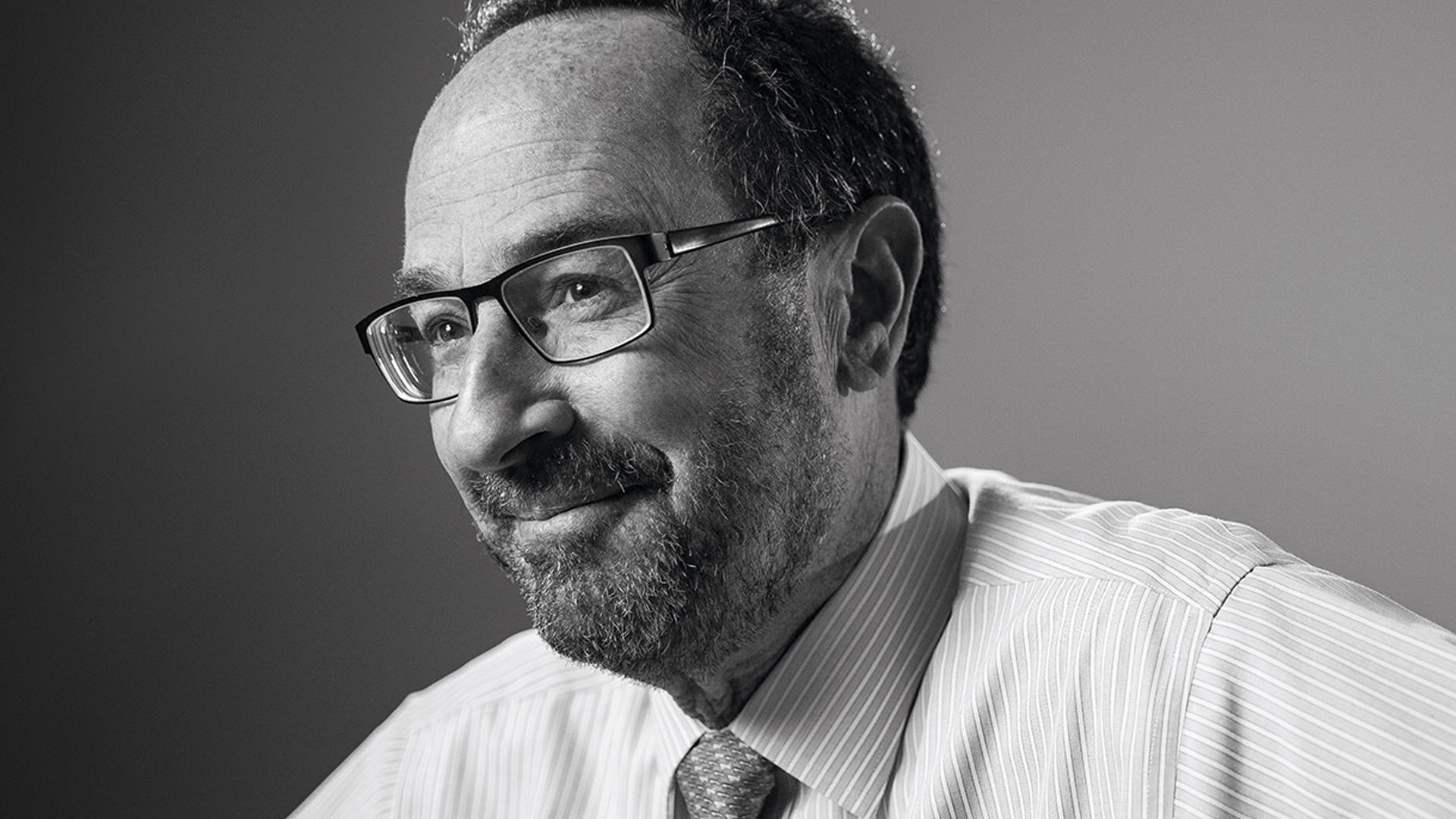
First person
'I am black before I’m a woman' | Shauna Clark in conversation with Ingeborg Alexander | Issue 19 | 2021


Partner Howard Seife in conversation with Ingeborg Alexander in 2017
I don’t think you would recognise me from my college days. I had a lot of hair.
They filmed The Way We Were with Barbra Streisand and Robert Redford at Union College in my last year, and we got to be extras. If you watch the Prom scene carefully, you can see me dancing. I picked a very short girl to dance with, so I’d be visible next to Barbra. They made us clean up for the movie, so I have a short haircut and I’m clean-shaven. This big bushy head of hair which I had through college landed on the barber’s floor. It was worth it to be in the movie.
My major was Latin American studies. I went abroad twice to study: one semester in Bogotà, Colombia, and then in Seville, Spain. Anything to get out of the winters in Schenectady, New York.
Yonkers was an interesting city to grow up in. It’s an old city on the Hudson River; it was the location for Hello Dolly. Now, I live just north of New York in a town called Larchmont. It’s on the water on Long Island Sound. It was originally a summer community for the rich so it’s got beautiful housing, turn of the century. It’s a wonderful small community.
I’ve been married for thirty-six years. My wife and I were introduced by Katie, a friend of mine from Georgetown (we were at law school together). Katie and I were both big baseball fans—New York Yankee fans—so we had a trip planned to go and see the Yankees in spring training in Fort Lauderdale, Florida. But at the last moment the third person, my college roommate, had to back out, so Katie invited her old Penn roommate, Amy, to join us. Amy had absolutely no interest in baseball, but I think she was secretly interested in getting to know me better. So she joined us; we went to a lot of baseball games and then did a roadtrip down to the Keys, and that’s when our romance took off.
I still go to baseball games. I can’t get Amy to go now. But my boys like baseball. And my daughter. Occasionally.
Soon after we got married, we moved to Brooklyn. Our daughter was born while we were in Manhattan but she started school in Brooklyn. We were in the Park Slope area and we had a brownstone—with tenants in the basement, so it helped financially.
We lived for a while in London. I studied at the LSE and worked with a US law firm and my wife worked for J Henry Schroder. We lived off the Edgware Road, north of the Marble Arch. We had a company townhouse. It was a great life.
College days were pretty wild. I was very much a part of the anti-war movement. I don’t think a month went by without a demonstration or a march in the streets. Vietnam was the centrepiece of university life. In my first weeks at college we were camping out to shut down the Reserve Officer Training Corps. I’d be staggering into my classes half asleep because we were up all night trying to protest the programme.
We all spent a lot of time discussing what we would do if we were drafted. It was very hard to get a deferment as a conscientious objector; you’d have had to take the position you were against all wars. That would have been hard for me.
Emotions were running very high. Friends were getting drafted; people were getting hurt. It was a difficult time.
I wouldn’t have traded it for any other time.
I love going to the theatre. I love live performances.
Mark Rylance is my all-time favourite actor. We saw him in Twelfth Night when it came over to the States. He was unbelievable. Saw him in Jerusalem, brilliant. He inhabits the role, there’s nothing quite like it. And then when you see him at the Academy Awards, he’s just a brilliant guy.
We go to the opera once a year but that’s it. I listen to a lot of jazz.
Bob Dylan probably did deserve to win the Nobel prize; his use of language is quite remarkable. I try to see him every year when he tours through New York.
In February, I’m going to see Bruce Springsteen when he plays at a small theatre on Broadway, about 800 people and just him on stage. I worked really hard to get those tickets.
In the old days I would take a real vacation, disappear. Now I find it virtually impossible to shut down completely. I do it a bit when we go up to Martha’s Vineyard in the summer.
I would never retire to Florida. Florida doesn’t interest me. I’ll retire to New York.
I do a lot of open water swimming. You can’t take your phone with you when you’re swimming. Every year I do a four-mile charity swim across Long Island Sound. I wear a wet suit for that because I could be in the water for two hours, so it gets a bit chilly.
I read all the time. I read at work. I read at home. I read on the train.
My wife writes short stories and is the managing editor of The Westchester Review. Amy Ralston Seife. I go to her for book recommendations. She tends to know what works for me.
My daughter is an editor; she writes, too—she wrote a tribute guide about the Hunger Games which became a New York Times bestseller, and she’s had some poems published. And she’s just had a baby—our first grandchild. It’s all very exciting.
My sons are pursuing their own paths as well. My youngest is an independent film-maker and my older son is studying for his doctorate in clinical psychology.
The current state of politics in the United States irritates me greatly. Every day it’s something new, a new surprise. But I’m hopeful. The United States is very resilient. We just need to stay focused.
South America is beautiful. You can read about a place but until you’re there and experience it for yourself you really don’t know what it’s about.
I went into the Peace Corps after college; I lived in a small town in the countryside in Colombia. When I was there, the drug trade had not yet become the problem it became. The issues were more political. It was a time when every American in Latin America was suspected of being an agent of the CIA, it was the time of Allende in Chile, so there was enormous suspicion about me as an American and what this thing was about the Peace Corps—’Why are you here? You’re here to spy on us, aren’t you?’ People I got to know personally realized quite quickly that I wasn’t a secret agent.
I was young and probably a little foolish so I wasn’t daunted by being off on my own in the mountains of Colombia. I do remember my mother being very concerned; one of the few times I actually saw her break down and cry was when she said goodbye to me at the airport when I took off for the Peace Corps.
My father died twenty-four years ago. He died relatively young, seventy-three. He was a very robust guy, very active, a serious table tennis player, and then he came down with Parkinson’s disease. It was very difficult to watch that deterioration. There were also elements of dementia. It was a gradual process, and then he got pneumonia and died. The ultimate keep him alive. I always thought he would get better; but he never did. So it really gave me a perspective on taking these heroic measures.
I think that informed the approach my wife and I took to her mother, who died a short while ago. She stayed in her own home and we had hospice care and, at least in my mind, that was a better approach.
Photograph by Ivan Maslarov
© Norton Rose Fulbright LLP 2025